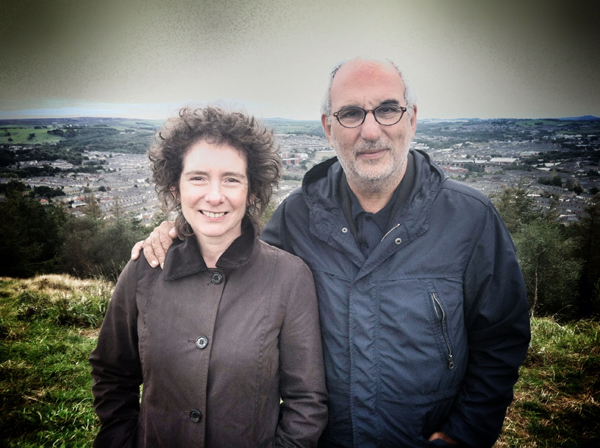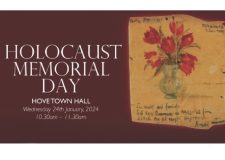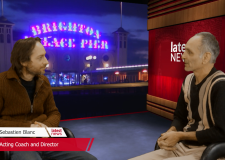Oranges & lemonade

Mother/daughter relationships are always complicated, but few could rival the intensity and heartbreaking tragedy that Jeanette Winterson depicted in her first novel Oranges Are Not The Only Fruit. With inspiration drawn from her own life as an adopted child in 1960s Manchester, brought up by an evangelical mother, Jeanette returns to the streets of her childhood with Alan Yentob to discuss that novel, and her more recent one – Why Be Happy When You Could Be Normal? – which also touches on her early life.
Sounds like a straightforward return-to-source and promote-the-new-release on location interview. As Jeannette drops herself back to the familiar doorstep she was so frequently expelled to for bad behaviour and continues her chat with Alan, her legs high on one side of the doorway as she leans into the other, her ease conveys so clearly the second home this was. And it breaks your heart.
“The devil led us to the wrong crib!”
There’s a lot of this about. Her brilliant and cutting quotes from her adopted mother are incredible – “The trouble with a book is that you never know what’s in it till it’s too late” and “The devil led us to the wrong crib!” were apparently particular favourites. Jeanette’s own stark and so articulately captivating epithets are equally straight down the line, whether she’s discussing bathroom facilities in a working class house or her own dark depression following the breakdown of her long term relationship. Jeanette – and the programme – is demanding of your attention through her brilliance from start to finish.
The documentary follows her relationships with both her first monster, ‘Mrs Winterson’ – referred to as nothing else all the way through, never once giving her the title of ‘parent’ or even humanised with a first name – and then the monster of her deep mental darkness that truly threatened to end her. It would seem that the more relatable – not the physical and mental abuse, the working class lesbian at Oxford experience or the huge success and then more rejection with her literary career – but a relationship breakdown, did the most damage. We’ve all been there, to some degree. And it would seem that coping mechanisms brought into play by extraordinary circumstances aren’t quite so helpful with the more ordinary tragedies.
Imagine is telling the story of a very remarkable storyteller. It’s going to be good. At the beginning she turns to Alan Yentob and says: “Some people know that they couldn’t commit murder, but I am not one of those people.”
“Shocking,” he responds gently, and Jeanette grins. That mixture of danger and friendliness, approachability and a scary ability to articulate and grab with every word. Yes, Yentob has done the job and I want to buy Jeanette’s books. But I also want to have a long lunch in Paris with her, discuss literature, themes, and history. She makes you hunger to be intelligent, but also for a hug against the horrors.
Imagine Jeanette Winterson: My Monster and Me, BBC1, Tuesday 4 December 2012





















